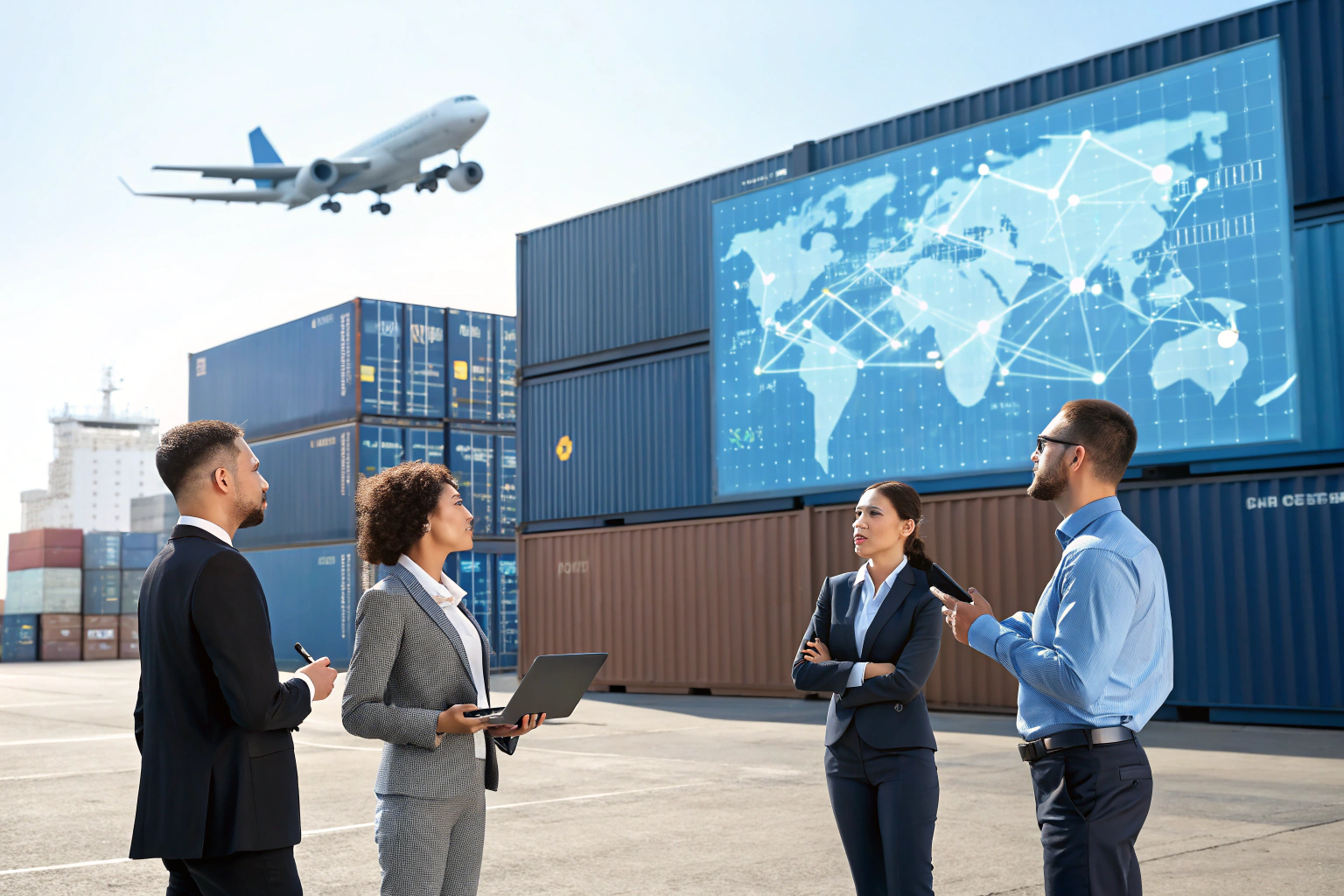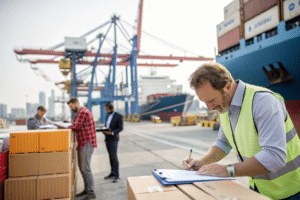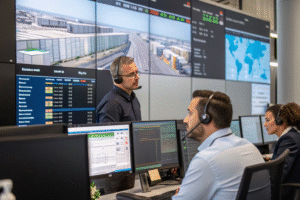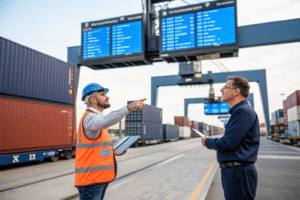Cross-border trade can seem complex. You have to manage shipping, customs, and tight deadlines. It is easy to feel overwhelmed by the logistics. This is where a freight forwarder becomes your key partner.
Freight forwarders act as the central planners for your international shipments. They handle the complex coordination of transportation, customs clearance, and documentation, ensuring your goods move efficiently from the seller's door to your warehouse. By managing these critical tasks, they save you time, reduce risks, and provide crucial expertise that simplifies global trade.
Understanding the full scope of a forwarder's role can transform your supply chain. Let's explore the specific services that make them an indispensable asset for any business importing goods, especially from China to the U.S.
How do freight forwarders handle documentation and customs?
Dealing with paperwork is a major challenge in international shipping. One small mistake can cause costly delays. Freight forwarders take this burden off your shoulders completely.
They ensure all your documents are accurate and submitted on time. This includes commercial invoices, packing lists, and certificates of origin. Their expertise prevents your goods from being held at the border. For U.S. imports, they manage the complex Importer Security Filing (ISF). You avoid hefty fines and keep your supply chain moving.

What specific documents do forwarders manage?
Freight forwarders prepare and check a wide range of crucial paperwork. The bill of lading is a core document, acting as a contract and a title of goods. They also handle the commercial invoice, which details the transaction value for customs. Other key documents include the packing list, certificate of origin, and any required export or import licenses. For shipments into the United States, forwarders are experts in filing the Importer Security Filing (ISF) well in advance. This prevents U.S. Customs and Border Protection from issuing penalties and ensures your goods are not delayed at the port of arrival.
Why is customs brokerage expertise critical?
Clearing customs is a legal requirement for all international shipments. It involves complex regulations and constant updates. A freight forwarder with strong customs brokerage services is vital. They calculate and ensure you pay the correct tariff costs and duties. Their knowledge of trade agreements can sometimes qualify your goods for reduced or zero duties. They also understand restricted items and product classifications. This expertise prevents seizures, delays, and unexpected costs, making your cross-border trade smooth and predictable.
What transportation options do forwarders provide?
You need flexible and reliable ways to move your goods. Freight forwarders do not own ships or planes. Instead, they act as your powerful negotiator with carriers. They offer a full range of transportation options to match your budget and timeline.
The main choices are ocean freight for cost-effective large shipments and air freight for urgent goods. They also provide rail and trucking services for land transport. For a seamless experience, many forwarders offer integrated DDP (Delivered Duty Paid) services. This means they handle the entire journey from your supplier's door in China to your warehouse in the U.S., including all transportation legs and customs.

When should you choose sea freight vs. air freight?
The choice depends entirely on your priorities. Sea freight is your best option for large, heavy, or non-urgent shipments. It is the most cost-effective method for moving large volumes, like full container loads (FCL). However, you must plan for longer transit times. Air freight is significantly faster but also more expensive. It is ideal for high-value, perishable, or time-sensitive products. A good forwarder will advise you on the best mode based on your sailing schedules for sea or flight availability for air, balancing speed and cost for your business.
How does a DDP service simplify logistics?
A DDP service (Delivered Duty Paid) offers the ultimate convenience. It is a complete door-to-door solution where the seller (or their forwarder) takes all the responsibility. We collect the goods from your factory in China. We then manage the entire process: export customs, international shipping, import customs clearance, and final delivery to your U.S. warehouse. You receive one invoice and have a single point of contact. This model provides cost certainty, reduces your administrative workload, and minimizes risks, making it a preferred choice for many U.S. importers.
How can a forwarder optimize costs and timeliness?
Price and speed are your top concerns. An experienced freight forwarder directly addresses both. We use our volume and carrier relationships to negotiate better freight prices for you. We also provide accurate sailing schedules and transit times, so you can plan your inventory effectively.
Our role is to find the sweet spot between cost and speed. We analyze different routes and carriers to recommend the most efficient option. We also help you avoid hidden charges and understand the true tariff costs. This transparency and optimization prevent budget overruns and ensure your products arrive when you need them.
| Factor | How a Forwarder Optimizes It |
|---|---|
| Shipping Cost | Negotiates bulk rates with carriers and finds the most cost-effective routing. |
| Transit Time | Provides accurate schedules and advises on the best mode (sea, air, rail) to meet deadlines. |
| Tariff & Duty Costs | Offers expert customs brokerage to ensure correct, and potentially lower, duty payments. |
| Hidden Fees | Provides all-inclusive quotes and transparent pricing to prevent surprises. |
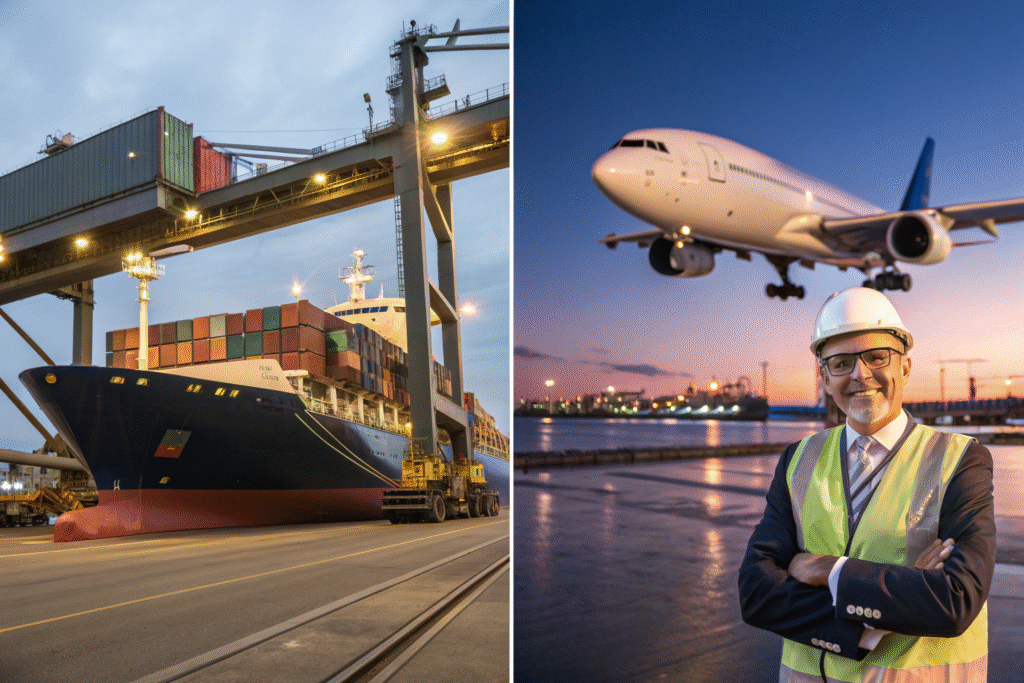
What strategies reduce overall shipping expenses?
Forwarders use several strategies to cut your costs. Consolidation is a key method. If you don't have enough goods for a full container, we combine your shipment with others. This allows you to pay only for the space you use, much cheaper than air freight. We also perform meticulous packing optimization to maximize container space and minimize dimensional weight charges. Furthermore, our deep knowledge of free trade agreements and customs regulations can legally reduce your duty liabilities. We pre-plan the entire route to avoid costly last-minute changes and demurrage fees.
How do forwarders ensure delivery timelines are met?
Meeting deadlines requires proactive management. We track your shipment in real-time from pickup to delivery. We maintain strong relationships with port officials and ground handlers, which helps us swiftly resolve any unexpected delays. For ocean freight, we provide reliable sailing schedules and book your space well in advance. We also manage the handoffs between different transport modes seamlessly. If a delay seems likely, we communicate with you immediately and propose solutions. This end-to-end visibility and control is crucial for maintaining the timeliness of your supply chain.
Why is risk management vital in freight forwarding?
Shipping goods across the world involves inherent risks. These include damage, loss, delays, and regulatory problems. A professional freight forwarder's core duty is to mitigate these risks, protecting your financial investment.
We ensure your cargo is properly packed and secured for the long journey. We also guide you on the right cargo insurance to cover potential damage or loss. Our expertise in customs clearance prevents legal issues that could halt your shipment. By managing these risks, we provide the safe and reliable service you need to run your business with confidence.

What insurance options protect your cargo?
While carriers have limited liability, cargo insurance provides comprehensive protection. A good forwarder will always recommend and help you arrange insurance for your shipment's full value. This coverage protects against a wide range of incidents, such as theft, fire, and containers lost at sea. The peace of mind it offers is invaluable. It ensures that even in the rare event of a major problem, your business does not suffer a significant financial loss. This is a key part of a reliable and trustworthy logistics partnership.
How do forwarders navigate supply chain disruptions?
Global supply chains are vulnerable to disruptions like weather, port strikes, or sudden capacity shortages. We actively manage these challenges. Our extensive network of contacts in major ports across China, Europe, and America gives us early warnings about potential issues. We then create contingency plans, such as rerouting shipments through alternative ports or switching transport modes. This proactive approach and problem-solving capability ensure your goods keep moving, demonstrating what it truly means to be a stable and resilient logistics partner.
Conclusion
The role of a freight forwarder in cross-border trade is comprehensive. We are your strategic partner, handling the complex details of documentation, customs, transportation, and risk management. This allows you to focus on your core business activities, like sales and growth, without getting bogged down by logistics.
For importers like you, shipping from China to the U.S., a forwarder is not just a service provider but an extension of your team. We bring the expertise and network needed to ensure your shipments are cost-effective, timely, and secure. Partnering with a reliable forwarder like GeeseCargo transforms the challenge of international shipping into a competitive advantage for your business.
